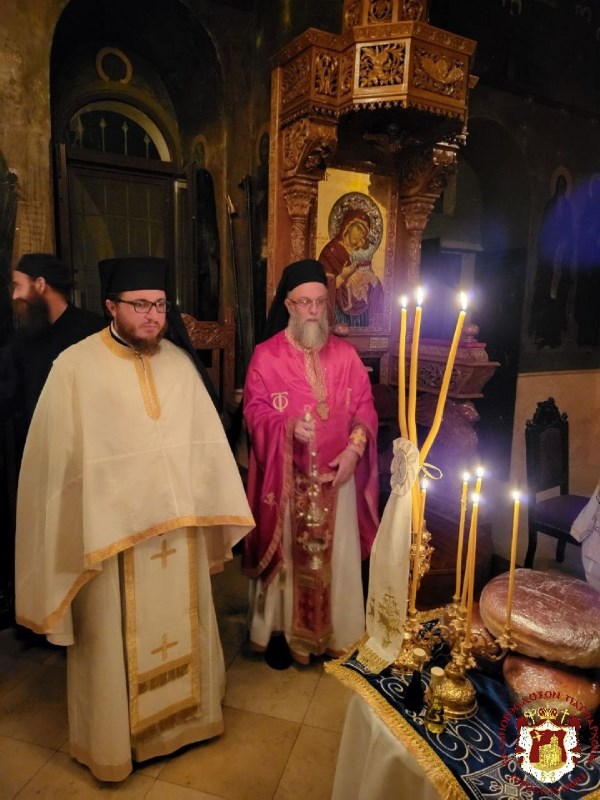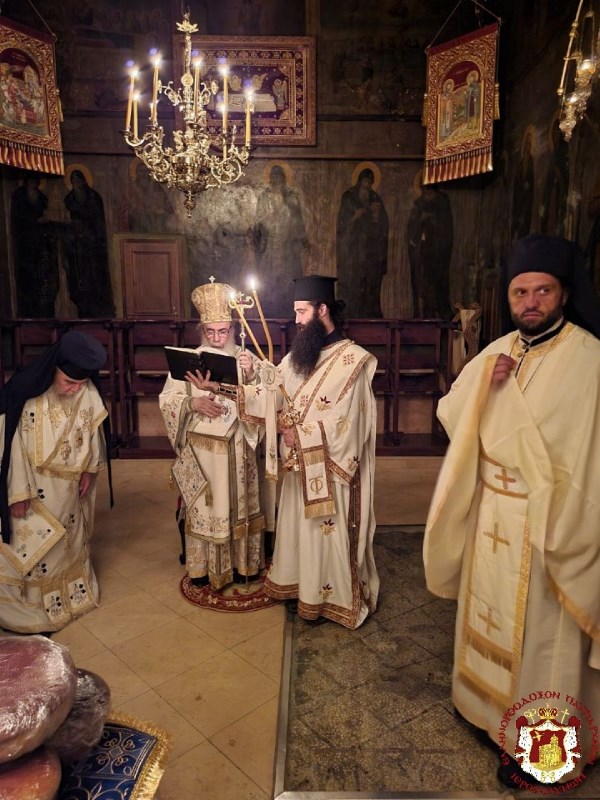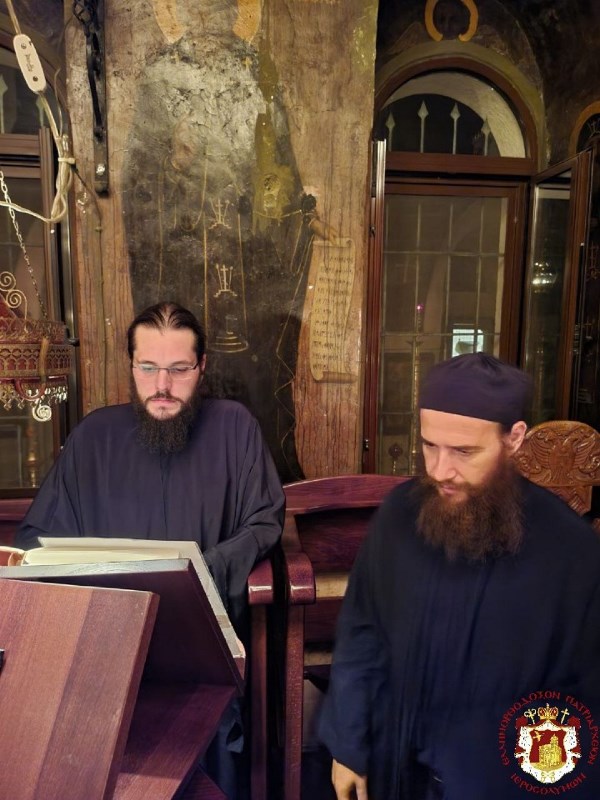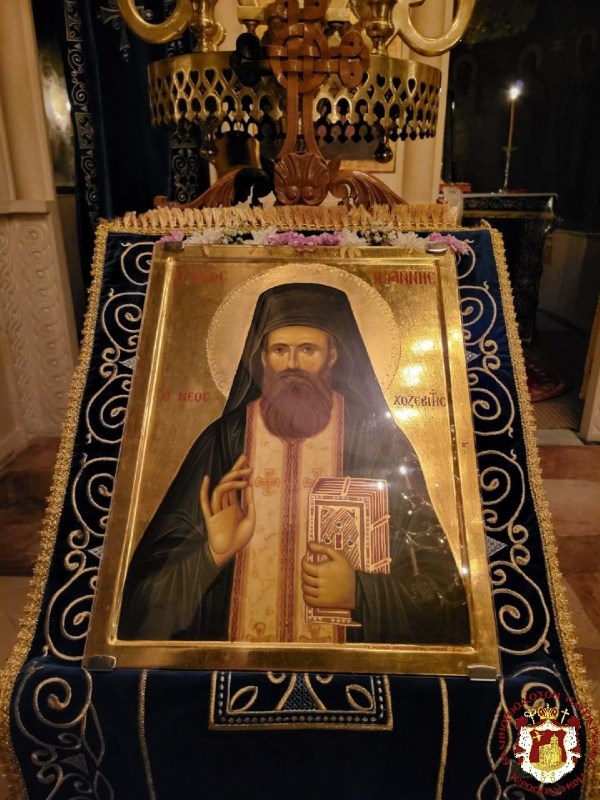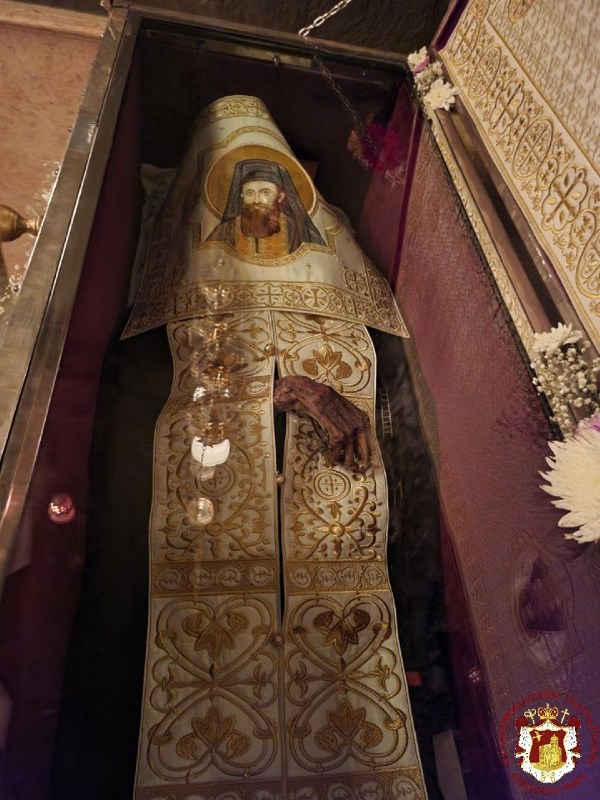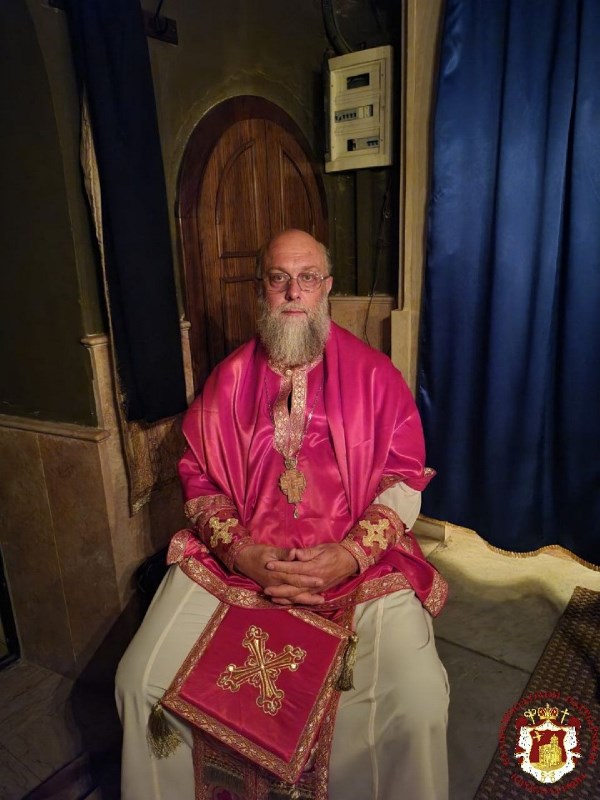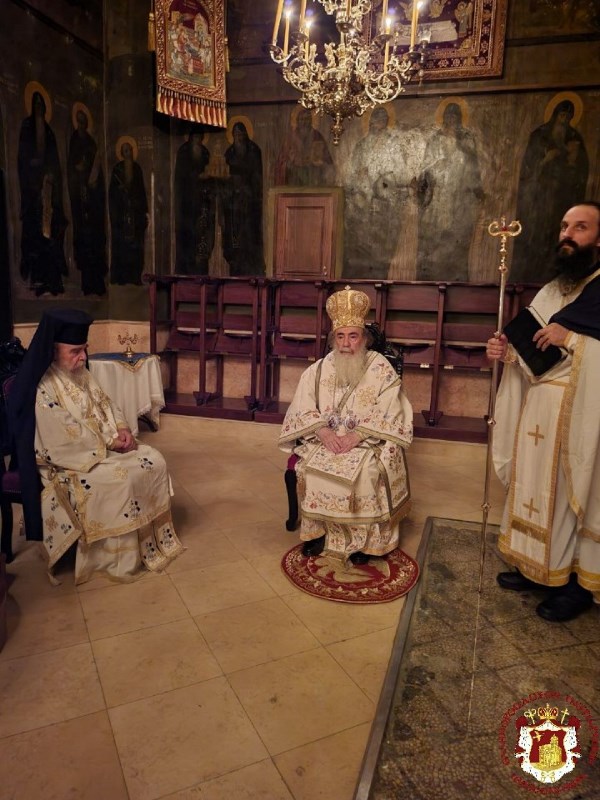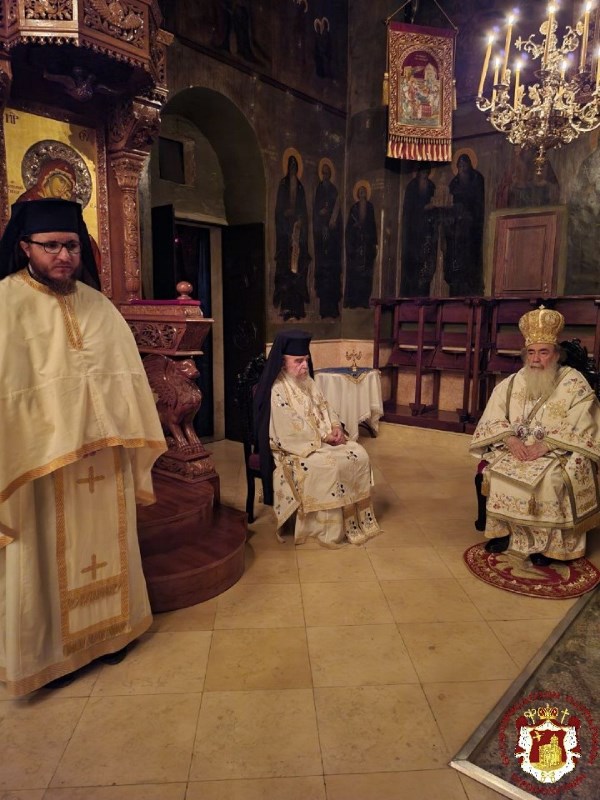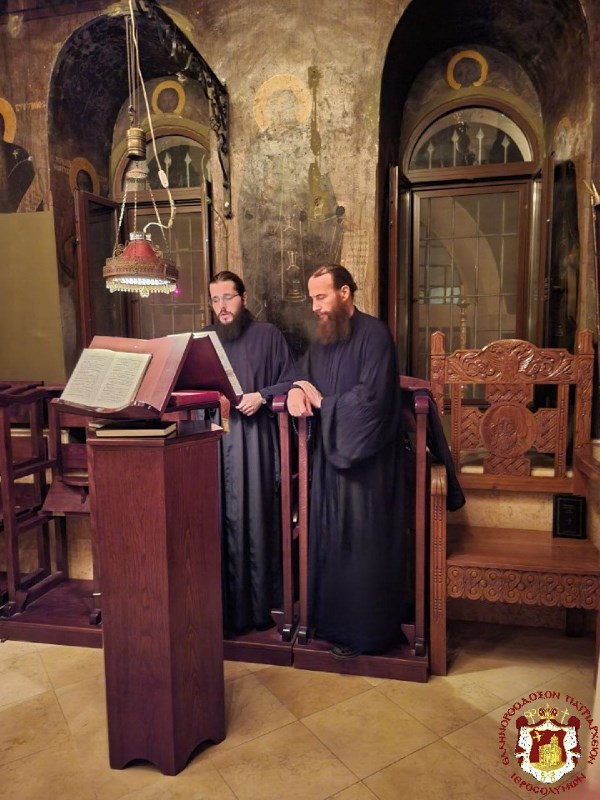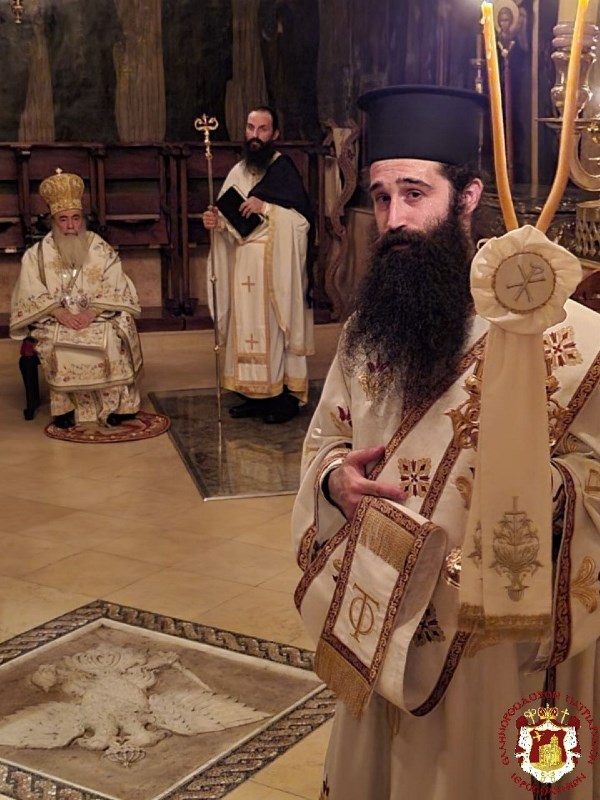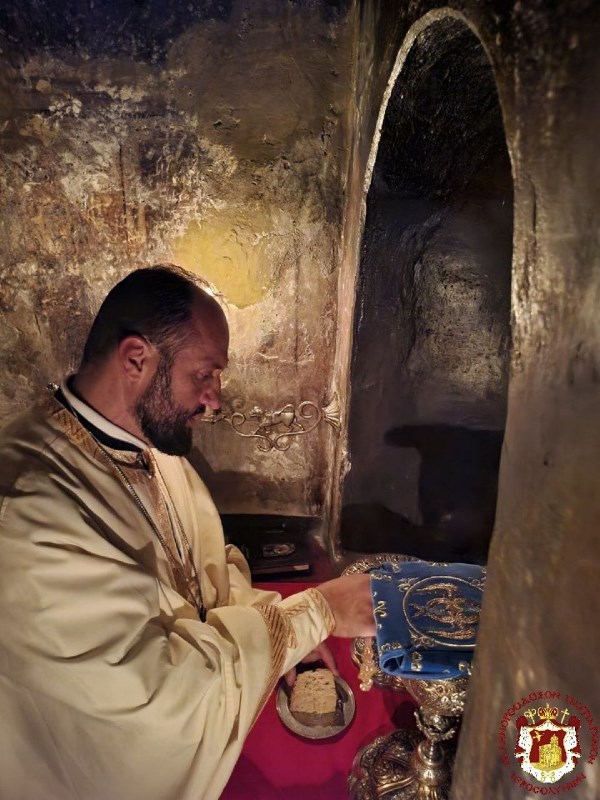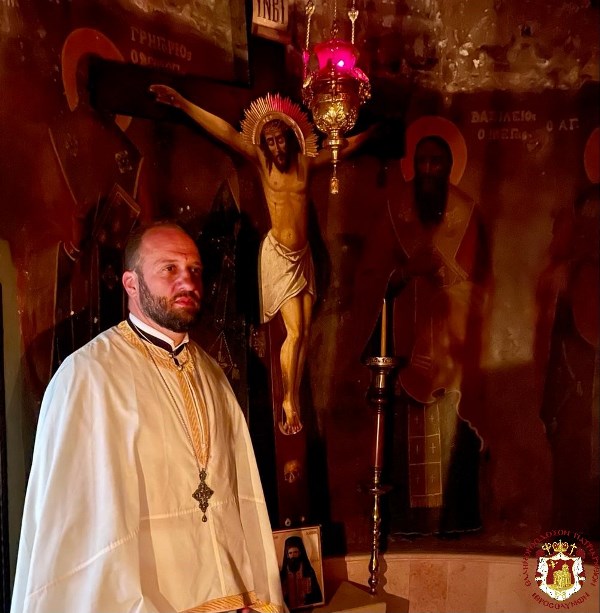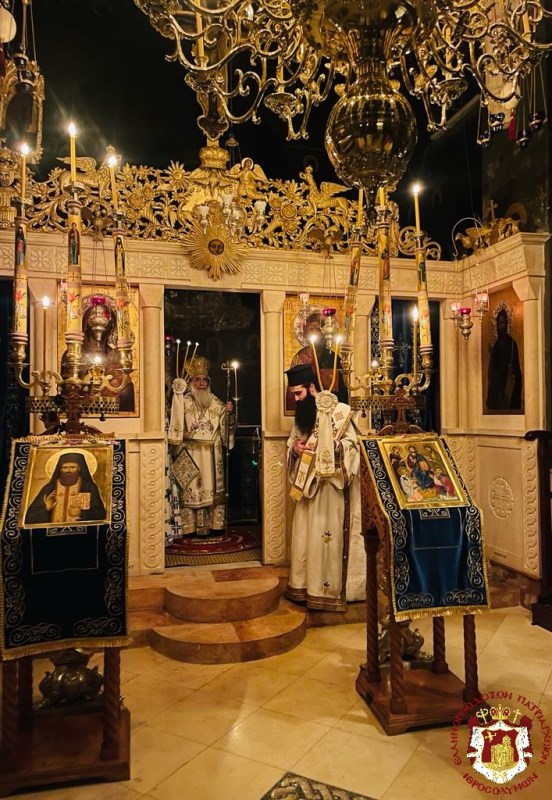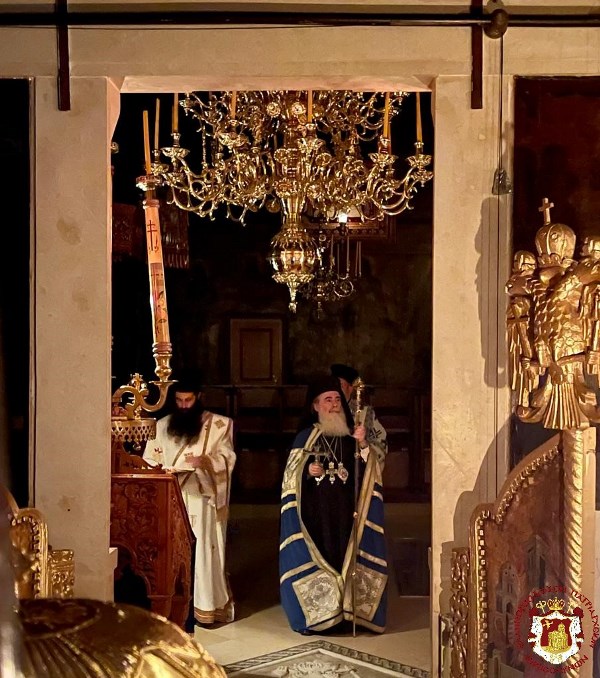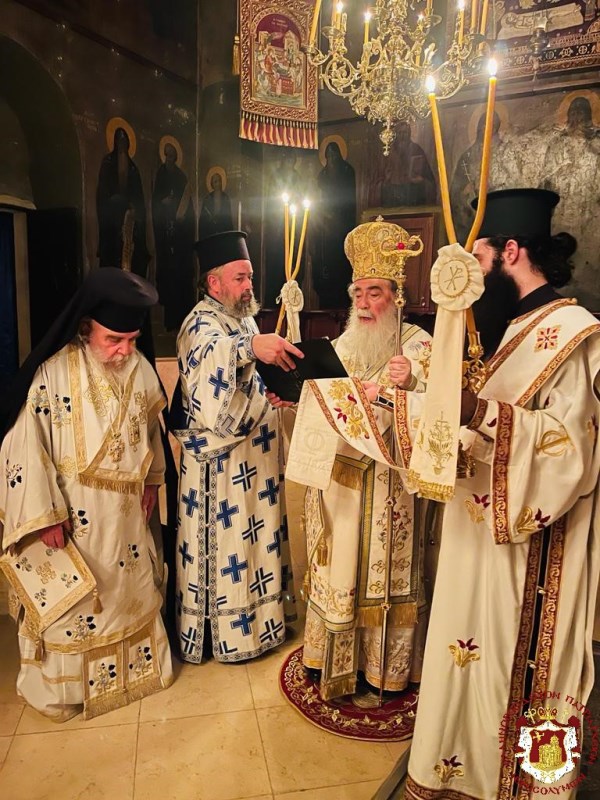The Feast of Saint John the New Hozevite at the Patriarchate of Jerusalem (VIDEO & PHOTOS)


On Wednesday, August 10, 2022, the memory of Saint John the New Hozevite, from Romania, was celebrated in the Holy Monastery of his repentance, of Saint George and John the Hosevites.
Saint John was added to the Saints of the Church of Jerusalem by its Synodal decision and by a special canonization ceremony in the Holy Monastery of Hozeva on January 18th / 31st of the year 2016, designating July 28th as the day of his commemoration.
Before Holy Communion, Patriarch Theophilos delivered the following Sermon:
“Light is sown for the righteous, and gladness for the upright in heart” (Psalm 97:11), the psalmist proclaims.
Reverend Holy Fathers and Brethren,
Noble pilgrims
The full of the divine grace memory of our Holy Father John the New Hozevite has gathered us all in this Holy Monastery, to glorify in Eucharist the One who has glorified His Saint, according to Saint Paul’s words: “whom he justified, them he also glorified” (Romans, 8:30). Inspired by the sacred desire for the desert life, our Father John left his homeland Romania and dwelt in the desert of the River Jordan, where the hermitages of the Monastery of Saint George the Hozevite are. “I”, Saint John says, “did not want high positions, nor did I desire wealth. I always had only the desire for the desert inside me like a flame”.
This unquenchable flame of his desire was kindled by David’s words: “Mine eyes fail for thy salvation, and for the word of thy righteousness. Deal with thy servant according unto thy mercy, and teach me thy statutes” (Psalm 119:123-124). In other words, Saint John fled to the desert seeking his salvation, both through strict asceticism and through the study of God’s law, that is, the Holy Scriptures, invoking the Apostle Paul saying: “Yea doubtless, and I count all things but loss for the excellency of the knowledge of Christ Jesus my Lord: for whom I have suffered the loss of all things, and do count them but dung, that I may win Christ, and be found in him, not having mine own righteousness, which is of the law, but that which is through the faith of Christ, the righteousness which is of God by faith: That I may know him, and the power of his resurrection, and the fellowship of his sufferings, being made conformable unto his death; If by any means I might attain unto the resurrection of the dead” (Phil. 3:8-11).
The chosen servant of God John, through his ascetic struggle in the desert but also through his preaching in written word, emerged as the Holy Apostles, a sincere and perfect worker of the Gospel of Christ. We say this because our Divine Father through us men and specifically through Saint John manifests the fragrance of the power of his knowledge in every place, as the Divine Paul preaches saying: “Now thanks be unto God, which always causeth us to triumph in Christ, and maketh manifest the savour of his knowledge by us in every place” (2 Cor. 2:14).
Indeed, my beloved brothers, this holy place of Hozeva, which has revealed the illustrious multitude of holy and righteous ascetics and spirit-bearing Fathers, became a place, where the Son and Word of God and Son of the Ever-Virgin and most blessed Theotokos Mary, our Lord Jesus Christ reveals “the savour of his knowledge by us in every place” (2 Cor. 2:14).
Therefore, we who honour the commemoration of His Saint, cry aloud with Saint Paul: “O the depth of the riches both of the wisdom and knowledge of God! how unsearchable are his judgments, and his ways past finding out!” (Romans 11:33).
Let us beseech God, who works all things for all” (Cf. 1 Cor. 12:6), so that our Lord Christ, the true God, Who is risen from the dead, through the intercessions of the Most Holy Theotokos and of the today celebrated Our Holy Father John the New Hozevite, may direct our hearts to the love of God and to the obedience of Christ (Cf. 2 Thess. 3,5) and to the communion of His glory. Amen. Many happy returns”.
Welcoming Patriarch Theophilos, the Hegoumen and renovator of the Monastery, Archimandrite Constantinos addressed the Patriarch as follows:
“Your Beatitude, Father and Master, with Your Holy Entourage,
We celebrate once again the memory of Saint John the New Hozevite, whose incorrupt relic is treasured in the Holy Monastery of Hozeva, a refuge and comfort for all of us.
The times we live in are harsh and the need for inspiration and spiritual prototypes is imperative. Such a prototype is Saint John the New Hozevite, who, throughout his life was distinguished by the founding virtue of the Monks; the Humility that raises up high!
Also, applying to himself the phrase, “let us not believe ourselves to be superior, but consider all people superior to us” (Saint John Chrysostom, Homily on Genesis, Vol. 92, p.167,24), he found the precious Pearl, our Lord Jesus Christ!
The aforementioned facts are clearly displayed in the Saint’s letter of some Monk of Mount Athos in 1957, and reveal his character. He wrote among other things:
“I received your fraternal letter, but my situation did not allow me to answer you… I beg you to forgive me because, in addition to my illness, my carelessness contributed to this!… But I wonder how from the heights of the spiritual mountains you descended so low, as to my poverty, to benefit! I am poor and penniless, brother! I have spent my whole life in vain!… However, for the effort and willingness you have, I will write to you what I always say to myself… First, sell what you have, sacrifice whatever ability (you think you have) and erase everything you know except our holy Faith! And buy the field that has the treasure in it! The “field”, my brother, is the pure heart like a baby, the lack of malice and the simplicity of the Lord. Entrench it well and then dig there continuously with the Spirit Knife. If the soil is hard, wet it regularly with the water of tears and sweat so that it softens! And then the treasure will be seen. The prayer of the heart! Be careful not to bring it to the surface, because it disappears! May your mind only be nourished, brightened and secretly elevated where your soul desires!… Forgive me, brother, and help me with your holy prayer, because I am very weak, mentally and physically”.
Your Beatitude, Father and Master,
Pray that, through the intercessions of our Most Holy Lady the Theotokos of Hozeva, and those of Saint John the New, whom we honour today, we may experience the humility that raises up high, and be deemed worthy of the endless joy of Paradise, always by the prayers of Your Beatitude, Amen!”
Fr. Constantinos submitted to the website of the Patriarchate the following detailed biography of the Saint, supplementing the text of his canonization, and posted there for those interested to read it:
and benefit from it, which took place on January 18th / 31st of the year 2016:
“Biography of Saint John the New Hozevite”
Elias Iakov (passport name) was born in the village of Horondistea, in Botosani county, Romania, in 1913 to Maximus and Ekaterini. Due to the fact that he was orphaned by both parents, he was raised until the age of 11 by his pious grandmother Maria, who instilled in the child’s soul the Divine Teachings. After she slept in the Lord, he passed into the guardianship of an uncle and lived a hard childhood in the midst of contempt and deprivation, but with hope firmly oriented to the Lord Jesus, Whom he actually saw with his own eyes on Easter 1927, when he was crying inconsolably at the grave of his parents. The Lord said to him in a sweet voice:
“Don’t cry my child and don’t be sad, because yes, I am with you. Christ is Risen!”
Based on his ordination letter preserved in the Archives of the Holy Monastery of Hozeva, his transfer to the river Jordan was preceded by his ordination as Deacon and Priest. Archimandrite Victorinos, head of the Romanian Representation in Jerusalem, had requested his ordination to the Romanian Patriarch Nikodimos. He, in turn, put the request to the Patriarch of Jerusalem Timotheus I, who accepted it. The first ordination was held on April 21, 1947, in the Holy and Life-giving Tomb of the Lord by His Eminence Archbishop Panteleimon of Naples and the second on April 28, 1947 by the His Eminence Archbishop Epiphanios of Philadelphia.
Expelled from the Romanian Monastery of the river Jordan, in 1952, as a nightingale that loves the desert, he settled with his co-ascetic Ioannikios (also of Romanian origin) in the Lavra of Hozeva for one year and six months. Then, seeking complete isolation to indulge in even higher spiritual struggles, he went alone to the hermitage of Saint Anne, which belongs to Hozeva. Only “the Lord saw” what he experienced and what experiences the Saint lived there, “alone with God only”. Every Sunday he went to the Coenobium to participate in the Divine Liturgy and to receive the absolutely necessary food, which the love of the Hozevite Fathers offered him. He himself diligently hid his ascetic struggles, choosing the way of life of the ancient Abbas, the “surreptitious living”. An excellent connoisseur of Greek, immersed in the Patristic texts, he translated a sufficient number of divinely inspired works into Romanian (they were published for the first time in 1968) and indeed the Salutations of the Most Holy Theotokos. Besides possessing a poetic talent, he left a rich collection of poems, of an exceptional height of meaning, the largest part of which has been translated into Greek.
On August 5, 1960, he slept in the Lord at the age of only 47 years, due to his failing health. His departure, which he had foreseen, was one befitting the righteous; Just a few minutes after the Holy Communion, as described by an eyewitness, the already blessed Father Basilios Vakras.
In October 1979, after miraculous signs, his relics was found incorrupt by the Hegoumen of the Hozeva Monastery, blessed Archimandrite Amfilochios. On the 28th of July 1980, with the holy Patriarchal blessing of the Patriarch of Jerusalem, Benedictus, his incorrupt relics was transferred from the Skete to the Holy Monastery, where it is kept today in the Catholicon Church, as a precious treasure and the source of many miracles! Glory and wealth of the Hozevite Fathers, of the Hagiotaphite Fathers in general, but also of the entire Church in service!
On Sunday, January 18/31, 2016, his canonization was announced in a solemn Divine Liturgy, which was officiated by Patriarch Theophilos III of Jerusalem.
His commemoration is celebrated on July 28th/August 10th, the day of the translation of his holy relics”.
The Divine Liturgy was followed by a monastic meal.
Source: Patriarchate of Jerusalem
More Photos:
